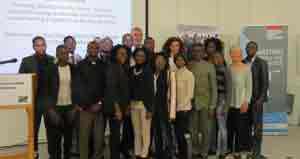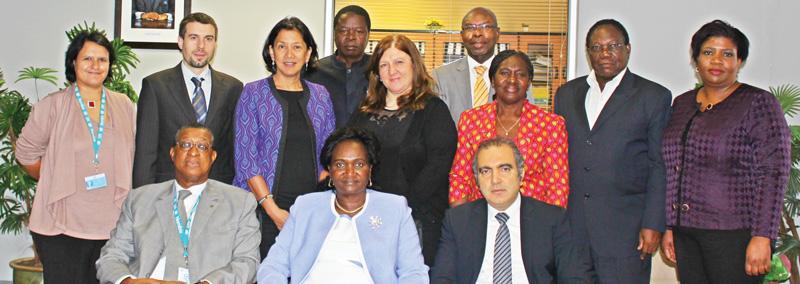
Future energy depends on aware youth

Educating the youth in energy generation is empowering them to participate in the process of influencing Namibia’s energy sector.
The programme, which is in its second phase, and conducted at the Goethe Centre in Windhoek, is aimed at enabling young Namibians to participate in the process of influencing the nation’s energy sector and create civil awareness in their respective communities.
The Economist this week spoke to the programme’s project facilitator, Dr Natalie Renkhoff about the history and progress of the training programme.
“Training young Namibians on sustainable options to meet Namibia’s rising energy demand, is a programme intended to give information on the close interconnection between the different ways of energy production including conventional energy sources, renewable energies and nuclear power, the protection of the environment and the mitigation of climate change. We believe that these topics are closely related and decisions on how to meet Namibia’s energy demand need careful consideration because of repercussions to the environment” said Renkhoff.
She said the training programme is in line with one of Namibia’s Vision 2030 objectives which foresees the nation’s industrialization by the year 2030.
“Our opinion is that the public should take part in decision making on such an important issue as the future of the energy sector, especially against the background that energy politics is a crucial factor in meeting the challenges of climate change in an African context. However, the public can only constructively participate in debates if properly informed about all benefits, obstacles and constraints of each option and understands why production of energy is a trigger for climate change,” said Renkhoff. She added “it is the aim of this project to educate young people with emphasis on previously disadvantaged groups. The knowledge gained might also help them to find employment in government agencies, the industry or elsewhere.”
The first phase of the training programme in which 12 students received training, consisted of four modules presented by international lecturers from various disciplines.
“This year 13 students qualified for the training programme which will consist of five modules. The first module is on climate change and the interconnection between energy production and climate change. The other modules deal with the different sources of energy that are discussed for Namibia; renewable energies, conventional sources of energy, nuclear power and the roles they can play in mitigating climate change as it is the aim of this project to educate young people so they can communicate their knowledge to their communities and create awareness on the energy sector. The last module is on techniques and strategies of awareness creation” she explained. Being a lawyer specialising in environmental and mining law Dr Renkhoff deals with the legal aspects of the energy sector. Commenting on the training programme, Xungileni Kathindi, a former participant of the programme said, “Through this training, my professional calling has been brought to light and I am so excited because I have found something to pursue that I am passionate about. I now have a purpose and feel that I have found a space in which to leave my mark in the history of this country. It is such a blessing to be part of a movement that concerns improving the lives of people today while at the same time preserving the world for future lives.”












































